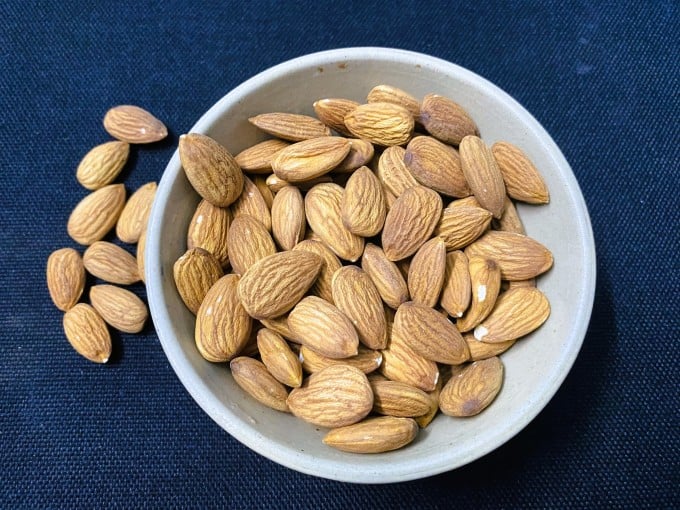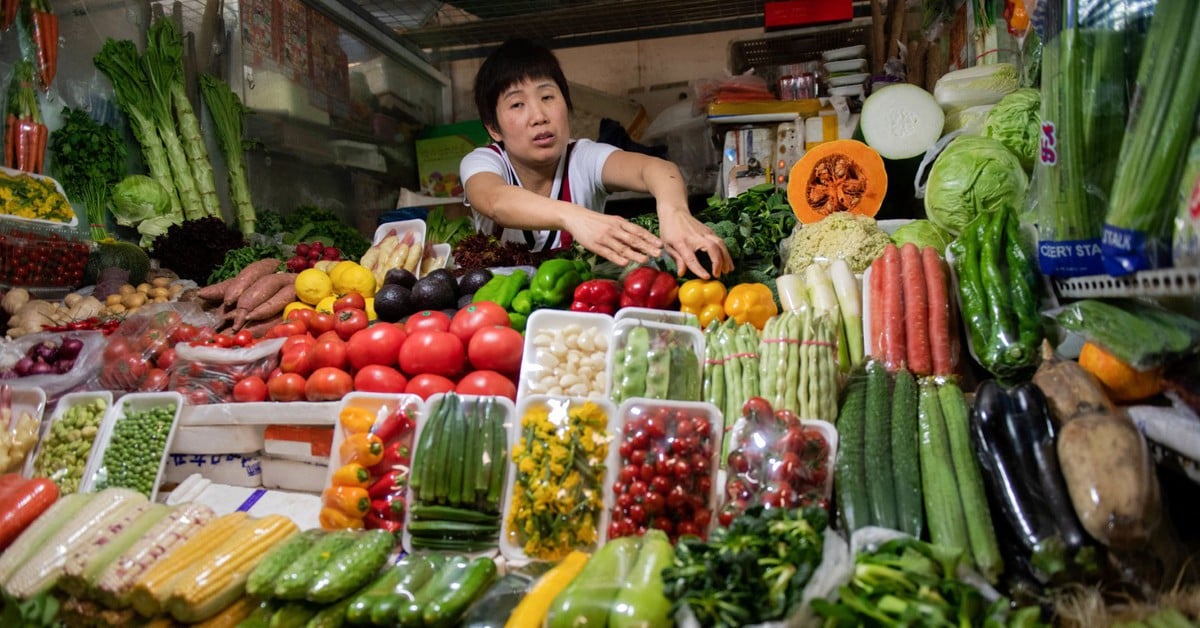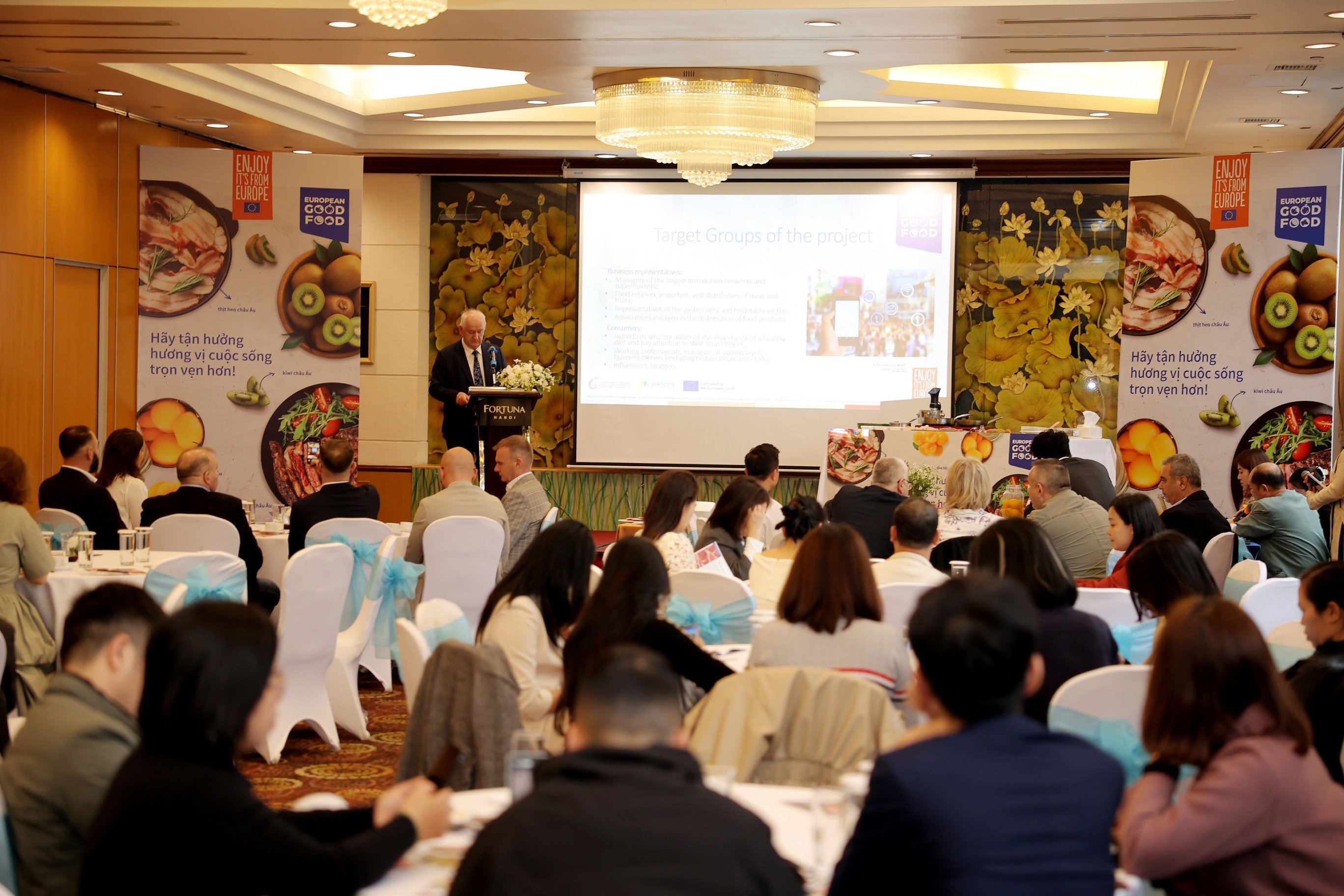Yogurt, collard greens, almonds, tofu and salmon are rich in calcium, protein and minerals that help keep bones strong.
Calcium is an abundant mineral in the body, stored mainly in bones and teeth. The body needs calcium to build strong bones and teeth, and to support the heart, muscles, and nerves.
Below are 4 calcium-rich food groups that are good for bone health.
Milk and dairy products
Milk : One cup of whole milk contains 306 mg of calcium, one cup of skim milk has 325 mg of calcium. This mineral in milk is well absorbed by the body. Milk is also rich in protein, vitamins A and D, which are beneficial for health.
Yogurt : Provides calcium and probiotics, good bacteria that help improve gut health and immune function. One cup (240 ml) of low-fat yogurt provides 34% of the recommended daily value (DV) of calcium, phosphorus, potassium and B vitamins. Regular consumption of yogurt is not only good for bones but also reduces the risk of heart disease and type 2 diabetes.
Cheese : A 1-ounce serving of cheese has 242 mg of calcium. A 12-ounce cup of cottage cheese has 23 grams of protein. This food is high in saturated fat, calories, and sodium (salt), which can affect weight, blood pressure, and heart health, so eat it in moderation.
Vegetables, fruits, seeds
People who are lactose intolerant because their small intestines do not produce enough lactase enzyme to digest the lactose in milk or do not like milk can choose calcium-rich plant products instead.
Leafy greens : Collard greens, kale, and spinach are rich in calcium. One cup of cooked collard greens contains 268 mg of calcium. Spinach contains oxalates, natural compounds found in plants that bind to calcium, making it harder for your body to absorb.
Broccoli : Each 340 g cup of broccoli provides 35 mg of calcium. This vegetable also contains vitamins and minerals including phosphorus, potassium, vitamins C, B9 and K, and beta carotene, which provide many health benefits.
Dried figs : This fruit contains more calcium per 28 gram serving than some other dried fruits. It is also rich in vitamin K and potassium, which are great for bone health.
Seeds : Chia seeds are rich in calcium and omega-3 fatty acids. Sesame seeds also contain minerals such as iron, copper and manganese. Each 340 g cup of amaranth seeds contains 116 mg of calcium, folate, magnesium, phosphorus and iron.
Each 28g serving (about 23 nuts) of almonds provides more than 76mg of calcium, and is rich in protein, fiber, healthy fats and vitamin E. Regular consumption of nuts helps strengthen bones, in addition to reducing blood pressure and body fat.

Almonds are rich in calcium, which helps strengthen bones. Photo: Mai Cat
Beans and bean products
Beans : Lentils, soybeans, and white beans are high in calcium, protein, fiber, and minerals like iron, zinc, folate, magnesium, and potassium, all of which support bone health. A 340-gram cup of white beans contains 161 mg of calcium and more than 17 grams of protein, while the same amount of soybeans provides nearly 98 mg of calcium.
Tofu : This product is rich in calcium, with half a cup (170 grams) containing 861 mg of calcium. Baked, sautéed, or fried tofu is also a good source of protein, especially for people who do not eat meat.
Soy milk : If you are lactose intolerant, soy milk is a good calcium alternative to cow's milk. One 8-ounce cup of soy milk provides 300 mg of calcium and more than 6 grams of protein.
Types of fish
Sardines : These small fish have edible bones that increase your calcium intake. One can of sardines contains 351 mg of calcium and about 23 grams of protein. Sardines are also rich in omega-3 fatty acids, which support brain, heart, and skin health.
Salmon : A 3-ounce serving of canned salmon has 241 mg of calcium and nearly 20 grams of protein.
From the age of 30, the body begins to lose calcium, leading to an increased risk of bone fractures due to osteoporosis, especially in women. People at this age should increase their calcium intake to keep their bones healthy and prevent bone diseases. Pregnant women, postmenopausal women and women who are lactose intolerant are at risk of not getting enough calcium, so ask your doctor about supplementation and determining the appropriate amount.
Mai Cat (According to Very Well Health )
| Readers send questions about musculoskeletal diseases here for doctors to answer |
Source link


![[Photo] Prime Minister Pham Minh Chinh chairs meeting after US announces reciprocal tariffs](https://vstatic.vietnam.vn/vietnam/resource/IMAGE/2025/4/3/ee90a2786c0a45d7868de039cef4a712)
![[Photo] Capital's youth enthusiastically practice firefighting and water rescue skills](https://vstatic.vietnam.vn/vietnam/resource/IMAGE/2025/4/3/3f8481675271488abc7b9422a9357ada)
![[Photo] Ho Chi Minh City speeds up sidewalk repair work before April 30 holiday](https://vstatic.vietnam.vn/vietnam/resource/IMAGE/2025/4/3/17f78833a36f4ba5a9bae215703da710)
![[Photo] Prime Minister Pham Minh Chinh chairs the first meeting of the Steering Committee on Regional and International Financial Centers](https://vstatic.vietnam.vn/vietnam/resource/IMAGE/2025/4/3/47dc687989d4479d95a1dce4466edd32)
![[Photo] A brief moment of rest for the rescue force of the Vietnam People's Army](https://vstatic.vietnam.vn/vietnam/resource/IMAGE/2025/4/3/a2c91fa05dc04293a4b64cfd27ed4dbe)
![[Photo] General Secretary To Lam receives Japanese Ambassador to Vietnam Ito Naoki](https://vstatic.vietnam.vn/vietnam/resource/IMAGE/2025/4/3/3a5d233bc09d4928ac9bfed97674be98)




















































































Comment (0)